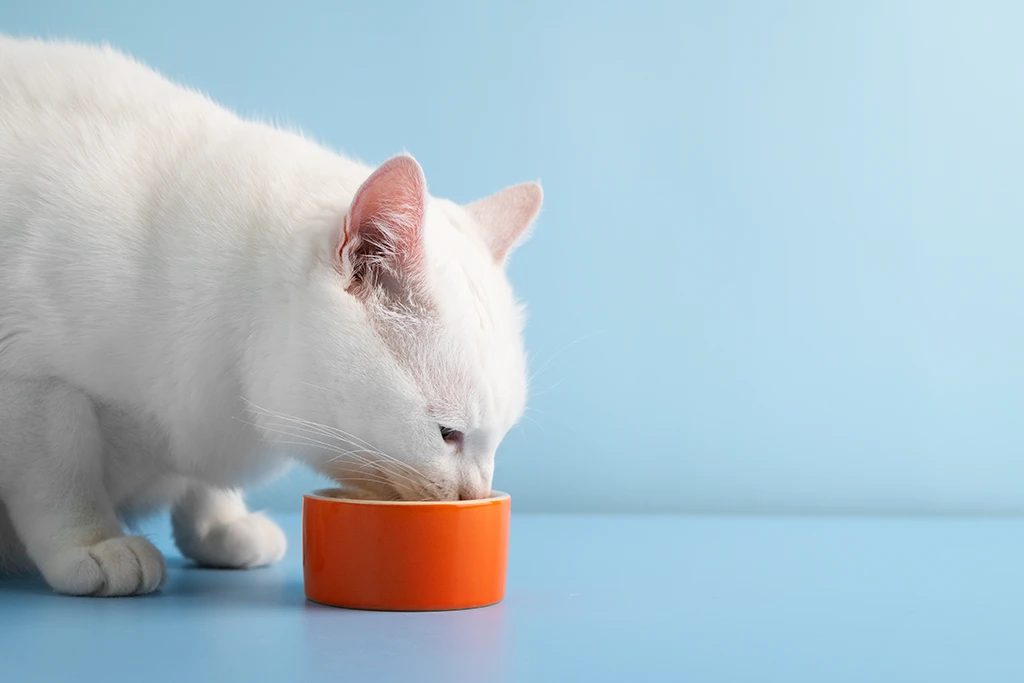

Some cats keep their owners up at night. The antics of cats at night have made them famous. It’s just how they are! But having so much energy makes it hard for them to sleep. There are ways to teach a cat and change how it acts so cat parents get more sleep if their cat’s late-night activities keep them up. CBD is a reasonable choice that potentially helps.
This article explores how CBD oil helps cats and makes them sleep peacefully through the night. It also aims to find out why cats are so active at night and how CBD oil potentially helps them calm down. Some easy tips on how to use it well are also presented.
Table of Contents
ToggleIt’s no fun when a cat parent is trying to catch some Z’s, and their feline friend decides it’s playtime. First, look into why a companion is acting like a soft alarm clock at night. After that, move the cat to the living room couch.
To solve the mystery of a cat’s nocturnal antics, look at their natural sleep-wake cycle. Cats are nocturnal, which means they are most busy in the evening. It seems like their internal clock is set to “party time” right when pet owners are getting ready to sleep.
Cats also have what’s called a polyphasic sleep pattern. A 24-hour observational study with a mean cycle duration of 104 minutes showed that “ An average cycle contained a 26-min wakefulness and a 79-min sleep episode with an average of 2.6 REM sleep epochs per sleep episode,” (Lucas, E., & Sterman, M., 1974).
Cats usually take naps during the day and night, while most people like to sleep in one long stretch. This results in them being fully awake and prepared to strike just as their paw-rents are preparing to retire for a peaceful good night’s sleep.
Although their natural instincts are a significant factor, there are additional factors why cats cause their paw-rents to stay up:
Boredom and Excess Energy: If a cat spends most of the day napping, they have pent-up energy to burn off at night.
Hunger Pangs: A cat wakes up for a midnight bite if they are not receiving a proper amount of food or if their feeding schedule is irregular.
Medical Conditions: Certain medical conditions, such as arthritis, hyperthyroidism, or cognitive decline, disrupt sleep and lead to nighttime restlessness.
Anxiety and Stress: Changes in the environment, separation anxiety, or even loud noises make cats anxious and restless at night.
Understanding the reason behind the cat’s nighttime behavior is the first step in addressing the issue and restoring peaceful sleep for both cat parents and their feline companion.

Interested in seeing how this works for a cat sleeping through the night? Get into the details of what it is and how it works.
CBD is an abbreviation for cannabidiol, a naturally occurring substance in the hemp plant. It has recently become popular due to the promise of its potency to aid humans and animals. But, of course, it does not get a cat high! Unlike THC or tetrahydrocannabinol – the psychoactive ingredient in marijuana plants-CBD is non-intoxicating.
Much like humans, cats have an endocannabinoid system, something like a big, wide-spreading web of chemical receptors that help keep all things balanced throughout their body. It plays a role in regulating a variety of functions, from mood and sleep to appetite and even the immune response.
Here are some of the ways that CBD oil is able to help a feline friend:
CBD (cannabidiol) promotes relaxation through its interaction with the endocannabinoid system (ECS) by “enhancing serotonin levels, causing relaxation,” (Linge, R., et al., 2016).) It’s almost like giving a cat’s body a little nudge in a gentle way in the right direction toward being in a restful state.
It also helps soothe the cat’s anxiety and stressed states interfering with sleep. “CBD reduces anxiety likely due to its effects on limbic and paralimbic brain areas,” (Crippa, J., et al., 2011).) For cats that are easily prone to night anxieties or spooked by too much noise, CBD offers them the feeling of stillness and security.
Inflammation and physical discomfort cause tension and unease. “CBD has anti-inflammatory and antioxidant properties, which may help ease discomfort,” (Atalay, S., et al., 2019). This indirectly helps promote a more relaxed state and better sleep.

Thinking of giving a cat CBD oil to help them catch those zzz’s a little more soundly? Here’s the scoop:
Most CBD oils come in tincture form with a dropper, which makes adjusting the number of drops very easy to fine-tune the cat’s dosage. This is especially great when starting with CBD since cat owners begin with a lower dose and work their way up to produce that “sweet spot” for their furry friend.
On the other hand, there are treats of CBD, which are very convenient to use. They come in pre-dosed treats, which eliminate the guesswork. Picky eaters prefer this more since there is no need to add CBD oil to food. However, treats have less flexibility in the dosage adjustments.
Broad-spectrum CBD contains the full gamut of helpful compounds found in the hemp plant, including cannabinoids, terpenes, and flavonoids. This creates what is called the “entourage effect,” a situation wherein these compounds act together synergistically to enhance their overall benefits.
On the other hand, full-spectrum CBD also contains those in broad-spectrum plus trace amounts of THC, less than 0.3%. The study by Kulpa, J., et al., (2021) showed that “Escalating doses of CBD and THC, alone and in combination, are safe and tolerable in healthy cats, with mild, transient adverse events.”
While that is not enough to intoxicate, some owners of pets prefer their pets not to be exposed to THC. Thus comes broad-spectrum CBD. It is treated like full-spectrum, providing the benefits of many cannabinoids and terpenes; however, it has the THC completely taken out.
Ultimately, the best choice depends on the cat’s needs and the cat’s parent’s personal preferences. If a cat parent doesn’t know what type of CBD the cat should be given, then they have to talk with the cat’s attending vet. They help paw-rents weigh their options and make an informed decision.
Giving the cat CBD oil is a breeze, even for finicky felines. Here are a few methods to try:
For cats that are naturally fond of food, this is usually the simplest and least stressful option. Simply add the desired number of drops of CBD oil to the cat’s food or a favorite treat. The oil blends seamlessly with the food, and most cats do not even notice the addition. If using treats, make sure they are soft and easy to infuse with the oil.
For faster absorption, administer the CBD oil directly into the cat’s mouth. This method allows the CBD to bypass the digestive system and enter the bloodstream more quickly. However, it is a bit more challenging, especially if a cat isn’t a fan of having things put in their mouth.
While most people think of ingesting CBD oil, it is also applied topically. This method is particularly helpful for localized pain or inflammation, such as arthritis in a specific joint.
When applying topically, gently massage the CBD oil into the affected area. The oil is absorbed through the skin, providing targeted relief. This method is also helpful for cats with skin conditions, as CBD has potential anti-inflammatory and soothing properties.
Important Note: Regardless of the method used, always start with a low dosage and gradually increase it as needed. Observe the cat closely for any changes in behavior or side effects. And, of course, consult the cat’s veterinarian if there are any questions or concerns.
Yes, CBD oil is generally safe for cats when used responsibly. However, it’s always best to consult a veterinarian before starting any new supplement, especially if a cat has underlying health conditions or is taking other medications.
No, CBD does not get a cat high. It’s non-psychoactive and doesn’t produce the “high” associated with THC.
The effects of CBD vary depending on the cat, the product, and the dosage. It takes anywhere from 30 minutes to a few hours to see noticeable effects.
While CBD is generally well-tolerated, some cats experience mild side effects such as drowsiness, dry mouth, or changes in appetite. Consult the cat’s veterinarian if any of these reactions are noticed.
It’s essential to consult the cat’s veterinarian before using CBD oil with other medications, as there are potential interactions.
If a cat’s nighttime antics are turning cat parents into sleep-deprived zombies, CBD oil possibly helps this struggle. By promoting relaxation, reducing anxiety, and alleviating pain, CBD helps cats settle down for the night and let paw-rents finally get some rest.
Remember to choose a high-quality CBD product, start with a low dosage, and consult the cat’s veterinarian if there are any concerns. With a little patience and the right approach, cat parents and their cats both enjoy the benefits of a good night’s sleep.
References

Table of Contents
Toggle